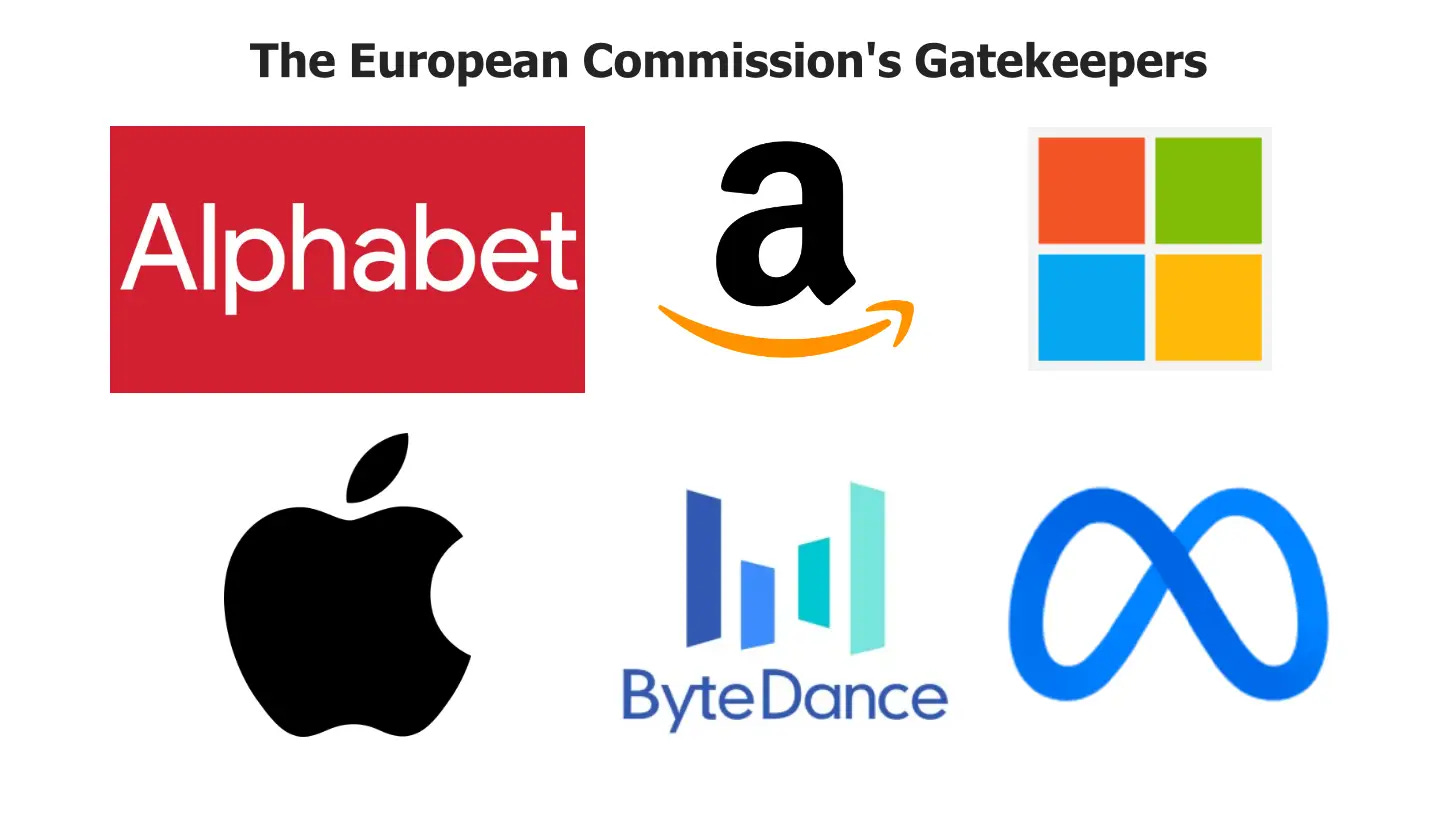#BLOG17 European Commission's 6 tech giant gatekeepers:

In today’s article, I am going to throw some light on what are the European Commission’s (EC) gatekeepers that were named on 7th September, what do’s and don’ts they need to follow and what repercussions, if the rules are broken by any of the tech giants.
Setting up the scene🖼:
Firstly, what does the European Commission do?
The European Commission is responsible for proposing new laws and policies. It makes sure that all the member states of the European Union(EU) follow these laws and policies. It is also referred to as the EU’s executive branch of government and has a total of 27 member commissioners from each EU member state. The Digital Markets Act(DMA) under which the EC proposed the new gatekeepers recently was introduced in 2020. Now what is the DMA ?
-The Digital Markets Act is the EU’s law to make the markets in the digital sector fairer and more contestable. In order to do so, the Digital Markets Act (“DMA”) establishes a set of clearly defined objective criteria to identify “gatekeepers”.
-Gatekeepers are large digital platforms providing so-called core platform services, such as online search engines(Google/Yahoo/…), app stores(Play Store/App Store/…), and messenger services(WhatsApp/Gmail/..). Gatekeepers will have to comply with the do’s (i.e. obligations) and don’ts (i.e. prohibitions) listed in the DMA. (Source: About the Digital Markets Act)
Who are the different gatekeepers?
EC announced the 6 gatekeepers on the 6th of September 2023. These are Apple, Amazon, Alphabet, Meta, Microsoft, and ByteDance (TikTok’s parent company). These gatekeepers and their 22 core platform services will have to follow the DMA do’s and don’ts and have 6 months to comply with the same.
The crux in deciding these firms as gatekeepers is to prevent them from using their power to dominate the market and allow other competitors to enter the digital/tech market. The term "gatekeepers" is exercised due to their "durable" market position in some digital sectors and because they also meet certain criteria such as:
If a company achieves a certain annual turnover in the European Economic Area and provides a core platform service in at least three EU Member States.
If a company provides a core platform service to more than 45 million monthly active end users established or located in the EU and to more than 10,000 yearly active business users established in the EU.
If the company met the second criterion during the last three years.
What are the Do’s and Don’ts the gatekeepers have to follow:
Examples of the “do’s”: gatekeepers will for example have to:
allow third parties to inter-operate with the gatekeeper’s own services in certain specific situations;
allow their business users to access the data that they generate in their use of the gatekeeper’s platform;
provide companies advertising on their platform with the tools and information necessary for advertisers and publishers to carry out their own independent verification of their advertisements hosted by the gatekeeper;
allow their business users to promote their offer and conclude contracts with their customers outside the gatekeeper’s platform.
Example of the “don'ts”: gatekeepers will for example no longer:
treat services and products offered by the gatekeeper itself more favourably in ranking than similar services or products offered by third parties on the gatekeeper's platform;
prevent consumers from linking up to businesses outside their platforms;
prevent users from un-installing any pre-installed software or app if they wish so;
track end users outside of the gatekeepers' core platform service for the purpose of targeted advertising, without effective consent having been granted.
Source: Digital Market Act
What does the Commission achieve out of this? and what are the consequences of non-compliance?
“The Commission ensures that fair market competition takes place and that no tech giant dominates the other small players.” The companies have 6 months to submit a compliance report as a result of following the rules mentioned in the DMA. In any circumstance if a gatekeeper is not complying with the obligations listed by the DMA🚨:
The Commission can impose fines of up to 10% of the company's total worldwide turnover.
The fine can go up to 20% in case of repeated infringement.
The EC can also ban the gatekeeper from acquisitions of additional services related to systemic non-compliance.
If we take the example of Google, then the below are some of the prohibitions that will affect the tech giant:
Google may no longer be able to give preferential treatment to its own shopping comparison service in its search results. This could make it easier for users to find and compare prices from other retailers.
Google may have to allow third-party app stores on its Android operating system. This could give users more choice and control over the apps they can install on their devices.
Google may have to make it easier for users to delete their data from its services. This could make it more difficult for Google to track users' online activity.
Google may be prohibited from tying its products and services together, such as requiring users to sign up for its Gmail service in order to use its search engine. This could give users more freedom to choose the products and services that they want to use.
Likewise, there are rules for all the other gatekeepers and their corresponding services.
If you like this article then do share it and let me know of any trending topic that is tinkling in your mind and wants to know more about it.
Till then, Happy learning :)
You can run an ad or news in our newsletters which gets you ahead by decluttering your product/article/project/innovation in tech and bringing your expected audience closer to you.









